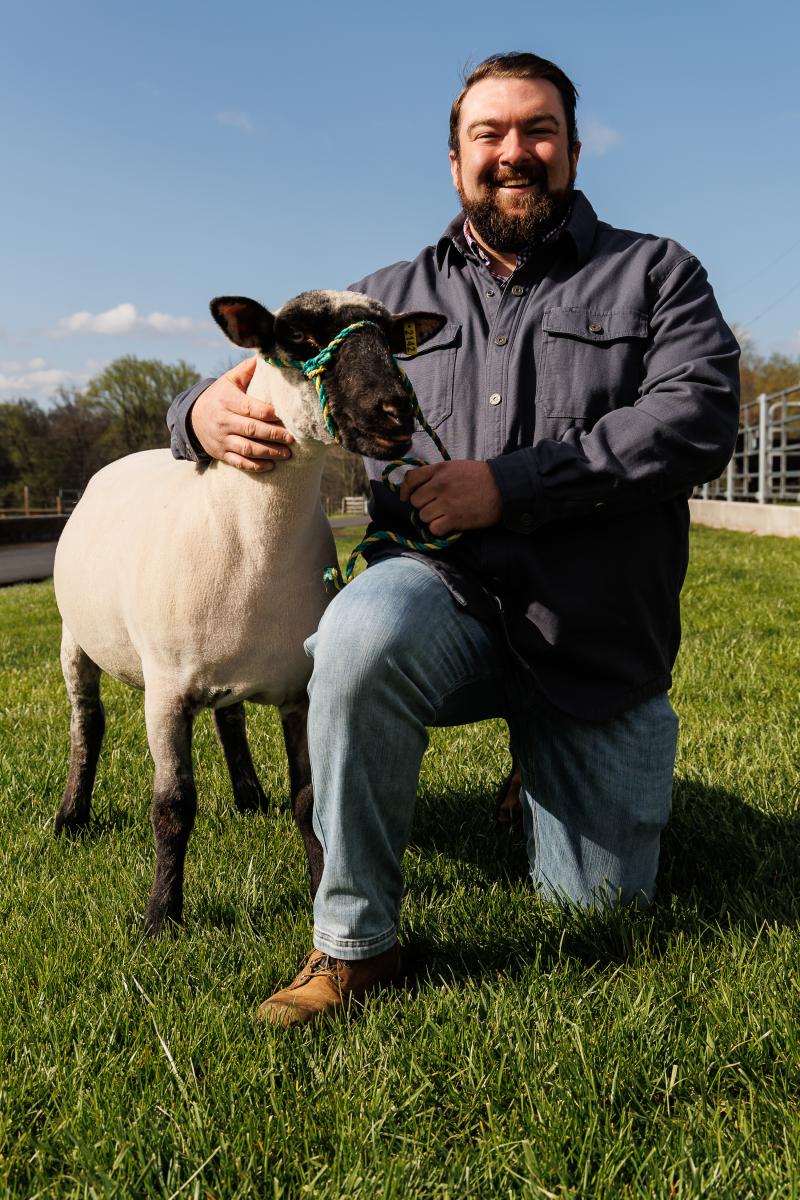Chair of the Animal Science Department Attends Cornell Advanced Shearing School
Dr. Fritz is featured in the American Sheep Industry’s (ASI) News Magazine.
Bill Fritz, Chair of the Department of Animal Science at Delaware Valley University (DelVal), attended an Advanced Shearing School at Cornell. Following the opportunity, Dr. Fritz was featured in an article by the American Sheep Industry’s (ASI) News Magazine, which included details about how his experience at Cornell will help him teach his students the basics of shearing.
Dr. Fritz mentors several DelVal students in undergraduate student research projects. He is the faculty advisor of Block and Bridle (Animal Science club) and advisor of The A-Day Student Planning Committee. He is also one of the coaches for the Northeast Student Affiliate (NESA) of the American Society of Animal Science and American Dairy Science Association Academic Competition team. He serves on the University’s Curriculum Committee and formerly served on the University’s Strategic Planning Committee. His academic interests include small ruminants (goats and sheep), domesticated animal behavior, reproductive endocrinology, and more.
At Cornell, Dr. Fritz picked up the nuances of the sheep shearer position and the finer points of shearing.
An excerpt from the article featuring Dr. Fritz is below.
-
At the opposite end of the student, spectrum was Bill Fritz, Ph.D. He towered over even the biggest sheep in the flock and has been shearing for approximately five years after attending a school taught by Emmons. As chair of Delaware Valley University’s Department of Animal Science, Fritz likes to think of the university’s flock of 55 breeding ewes as his own. “Hoyt asked if I might be interested in following him around and apprentice with him," Fritz said. "So, I did that for a year or two and since then we’ve been shearing in partnership. We share a lot of our clients and shear together most of the time, but we each also have some of our own clients.” While he enjoys shearing and sees himself doing it as a side job for years to come, there are benefits beyond the extra income. He’s gained experience with a variety of previously unfamiliar sheep breeds that translates into knowledge he can share with small ruminant classes at the university. And the skills he refined at the Cornell Sheep Shearing School will help as he teaches his own students the basics of shearing. “Some of the nuances of the positions was the main thing I picked up this weekend,” he said. “It’s important to keep the sheep from getting away from you in those tight spots. There’s a lot of finer points of shearing that you can’t pick up without learning from someone like Doug and his trained, experienced eyes. It’s scary to try some of these things, but you use that pattern and the next sheep you shear goes so much quicker and easier. It’s about developing good habits."
